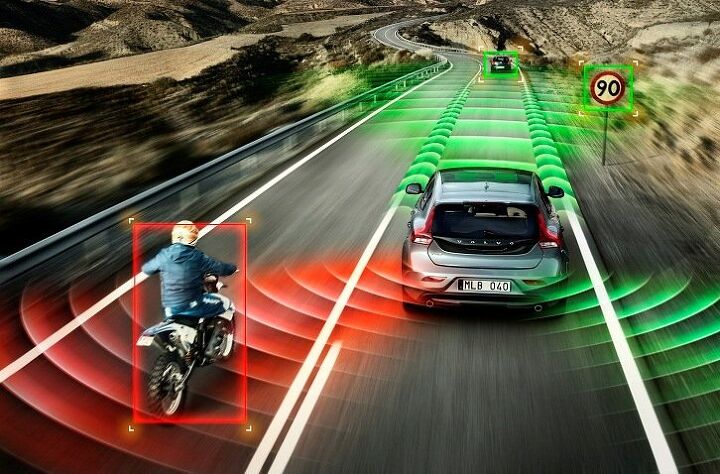Michigan's Self-Driving Dream Is Now Just a Vote Away

If the House approves it, Michigan will become the first state to allow autonomous vehicles to drive on certain public roads, at any time, for any purpose.
According to the Detroit Free Press, the state Senate has unanimously approved four bills aimed at making Michigan the self-driving mecca of the U.S., giving consent for autonomous vehicles to operate on 122 miles of public roads, not just on closed courses during pilot projects.
After the 36-0 vote in the Senate, the bills move to the House for consideration. Automakers and tech developers have their fingers crossed, as they plan to turn the state into a proving ground for what they hope is the future of driving.
Lawmakers seem to share the same view. Sen. Ken Horn (R-Frankenmuth), speaking to the Detroit Free Press, compared the legislation and burgeoning industry to the Cold War-era space race.
Naturally, the legislation is worded to protect the state’s automakers. Senate Bills 995 and 996 allow “on-demand automated motor vehicle networks,” but only if it involves a recognized automaker. That leaves Ford, Fiat Chrysler and General Motors in the clear, but keeps the likes of Google, Apple and other players out.
Ford and GM have their own autonomous vehicle operations in Michigan, while FCA has partnered with Google on a fleet of 100 self-driving Chrysler Pacifica minivans. Top Japanese automakers have collaborated with Ford and GM on the University of Michigan’s Mobility Transformation Center and its Mcity testing facility.
The legislation, if passed by the House, would benefit the fledgling American Center for Mobility and its goal of turning the Willow Run airport into a self-driving tech hub.
On the safety front, one of the bills targets hackers, making it clear that anyone caught accessing or tampering with a self-driving vehicle’s electronic control systems will face serious consequences, including the potential for life in prison.
[Image: Volvo]

More by Steph Willems
Latest Car Reviews
Read moreLatest Product Reviews
Read moreRecent Comments
- Honda1 Unions were needed back in the early days, not needed know. There are plenty of rules and regulations and government agencies that keep companies in line. It's just a money grad and nothing more. Fain is a punk!
- 1995 SC If the necessary number of employees vote to unionize then yes, they should be unionized. That's how it works.
- Sobhuza Trooper That Dave Thomas fella sounds like the kind of twit who is oh-so-quick to tell us how easy and fun the bus is for any and all of your personal transportation needs. The time to get to and from the bus stop is never a concern. The time waiting for the bus is never a concern. The time waiting for a connection (if there is one) is never a concern. The weather is never a concern. Whatever you might be carrying or intend to purchase is never a concern. Nope, Boo Cars! Yeah Buses! Buses rule!Needless to say, these twits don't actual take the damn bus.
- MaintenanceCosts Nobody here seems to acknowledge that there are multiple use cases for cars.Some people spend all their time driving all over the country and need every mile and minute of time savings. ICE cars are better for them right now.Some people only drive locally and fly when they travel. For them, there's probably a range number that works, and they don't really need more. For the uses for which we use our EV, that would be around 150 miles. The other thing about a low range requirement is it can make 120V charging viable. If you don't drive more than an average of about 40 miles/day, you can probably get enough electrons through a wall outlet. We spent over two years charging our Bolt only through 120V, while our house was getting rebuilt, and never had an issue.Those are extremes. There are all sorts of use cases in between, which probably represent the majority of drivers. For some users, what's needed is more range. But I think for most users, what's needed is better charging. Retrofit apartment garages like Tim's with 240V outlets at every spot. Install more L3 chargers in supermarket parking lots and alongside gas stations. Make chargers that work like Tesla Superchargers as ubiquitous as gas stations, and EV charging will not be an issue for most users.
- MaintenanceCosts I don't have an opinion on whether any one plant unionizing is the right answer, but the employees sure need to have the right to organize. Unions or the credible threat of unionization are the only thing, history has proven, that can keep employers honest. Without it, we've seen over and over, the employers have complete power over the workers and feel free to exploit the workers however they see fit. (And don't tell me "oh, the workers can just leave" - in an oligopolistic industry, working conditions quickly converge, and there's not another employer right around the corner.)































Comments
Join the conversation
bill could backfire
I read somewhere that autonomous vehicles have a lot of trouble merging onto busy freeways and sometimes come to a complete halt at the end of the ramp, waiting for a big gap. Don't know if this is actual experience or someone's speculation but this could be interesting! Also the "playing chicken" possibilities sound like fun - until someone gets hurt, of course.